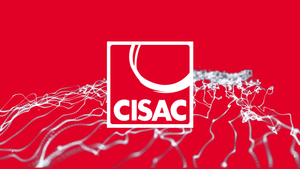CISAC - the global organisation for song right collecting societies - has published its annual report setting out its lobbying priorities and providing updates on its other projects.
Unsurprisingly, the challenges and opportunities presented by AI are a key focus, but there are also updates on CISAC’s work around song data.
The organisation’s President Björn Ulvaeus kicks off the AI conversation at the start of the report, noting that - at CISAC’s General Assembly in Mexico last year - he discussed how AI “will bring the biggest revolution the creative sector has seen”.
The conclusion of the General Assembly, he adds, was that “we must act now. We should not sit on our hands waiting to see how things evolve. We cannot let tech companies and policy makers sit at the decision-making tables while the creators are left outside the room”.
“Since then”, he continues, “I’m pleased to say a lot has happened. We have taken our messages to regulators. We have sat with world leaders. We have issued many submissions in national legislatures”.
Through that work, he goes on, three core principles have emerged: the need for creators to consent to the use of their work by AI companies, the need for creators to be fairly remunerated, and the need for AI companies to be fully transparent about what training data they use.
There’s a long way to go to persuade all AI companies to embrace those principles of course, but Ulvaeus says there has been some progress. “Europe, as so often the standard-bearer for creators’ rights, has adopted the EU AI Act, something I and CISAC’s Vice-Presidents engaged in actively”, he says.
“Its provisions on transparency are a welcome step that can serve as a model for other territories”, he goes on. “And there will be a lot more legislative activity in the coming months, with CISAC and its global network uniquely placed to lead the campaign”.
Beyond its campaigning work, CISAC also controls many of the key data standards and systems on the songs side of the music business. That includes CISnet, which allows collecting societies to share data, and the ISWC that is used to identify individual songs. There have been developments on both those things over the last year.
CISnet used to be owned by a third party entity, but last year ownership moved to CISAC itself. “The transfer gives CISAC full control over the running of the network and enables future adaptation of CISnet to meet societies’ changing business needs”, the annual report states.
On the ISWC front, a key objective in recent years has been getting the song codes issued faster and having them more readily available. That’s linked to moves to try to get ISWCs into the digital supply chain before new recordings go live on the platforms - so that both the recording and the song are identified, by the ISRC and ISWC respectively.
“Linking the two identifiers at the time of release would be a major improvement in the system and CISAC is working in collaboration with several societies to advance towards this objective”, the report states. That includes UK society PRS which, the report adds, has worked with CISAC to launch a ‘proof of concept’ project which “aims to give music uploaders a simplified way to include an ISWC, alongside the existing data they already provide to streaming services”.
“After the success of the project”, the report says, “CISAC is now implementing the service in the ISWC system, involving several societies, publishers and labels. Bringing together the ISWC and ISRC at the point of release of a song has a huge potential for creators and rightsholders and would be a giant leap forward for the industry, as a whole”.

